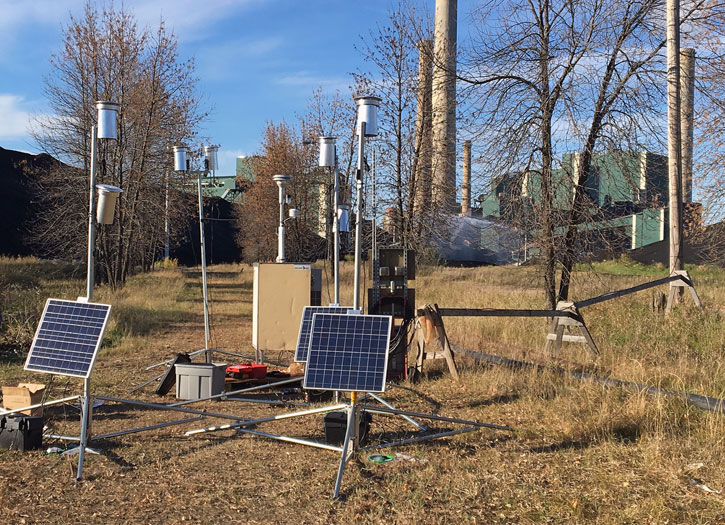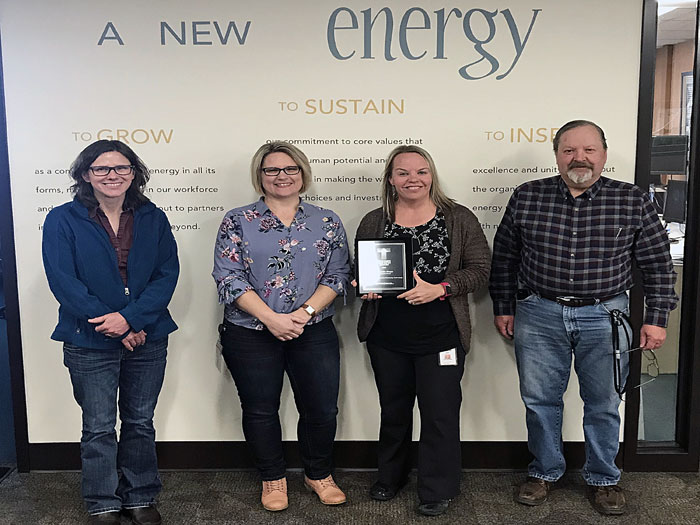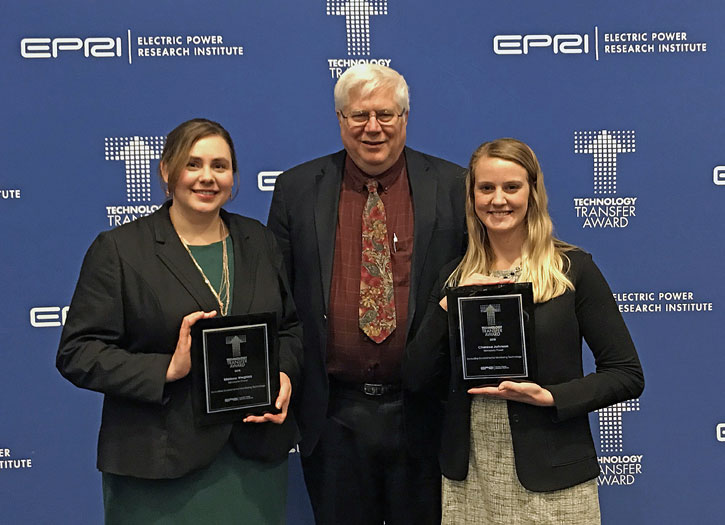Microsensor research at Boswell Energy Center earns Minnesota Power team an award
March 12, 2019
A Minnesota Power team that tested an array of microsensors to measure ground-level dust at Boswell Energy Center won a Technology Transfer Award from the Electric Power Research Institute (EPRI).
The study was designed to assess the usefulness of the low-cost microsensors to measure dust (particulate matter) emissions from coal pile and other operations at Boswell, leading to potential operational changes that could further reduce “fugitive” emissions (unintended emissions that contribute to air pollution). Low-cost air quality sensors have increasingly been promoted and implemented by environmental groups, industry and regulators as grassroots technology, but their rise has also raised questions about sensor accuracy.
“The project scope at the Boswell host site included installation of a federal reference monitor and collocated microsensor, other solar-powered microsensors, and a meteorological tower,” said Melissa Weglarz, air and water quality manager for Environmental and Land Management (ELM). “Elevated cameras were also positioned to log a visual record of weather events and site conditions. Simply speaking, we were trying to calibrate the microsensors against standard measurement devices.”
“Coordination between ELM and Boswell staff was critical to help understand how this nascent technology should be viewed in real-world applications,” said Kurt Anderson, ELM director.
Indeed, as EPRI Vice President Rob Chapman remarked at the Feb. 26 award ceremony in Houston, “research is just research if it sits on a shelf.”
While the microsensors were challenged by high humidity and low temperatures, the team found the sensors have potential to help guide daily operations to reduce dust levels. This project also helped demonstrate that the sensors are not yet able to provide the quality of data appropriate for regulatory purposes, despite the low cost and ease of use. A sensor requires little or no training and can cost only hundreds of dollars; some can even plug into a smartphone. This is in stark contrast to reference monitors, which cost thousands of dollars and require specialized training to ensure accuracy.
“It’s exciting to leverage new technology to assist with evaluating its effectiveness while providing data to help drive our operations. With the recent software upgrades made, we are closer to our goal of incorporating alarm functionality so that operational actions can be taken in response to potential condition changes such as dry conditions or high winds,” said Amanda Kluge, manager of Generation Support Services at Boswell.
EPRI Technology Transfer Awards recognize members for adopting new technology and transforming research into results. Nominations are received from EPRI staff members and companies, and winners are selected by their peers. Thirteen EPRI member companies were awarded technology transfer awards for 2018 across 14 research categories within the Energy & Environment Sector. MP won within the Innovative Environmental Monitoring Technology category.
To see all of the 2018 EPRI Technology Transfer Awards, click here.





